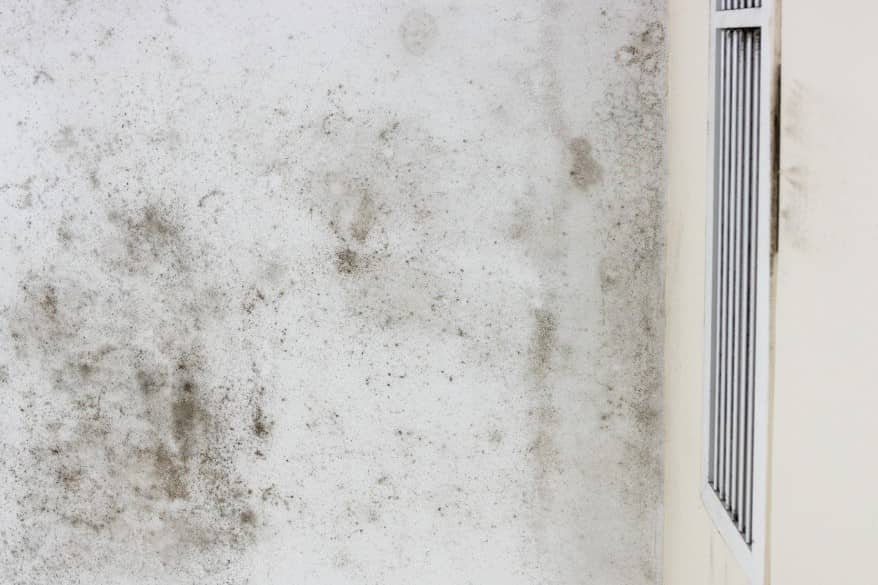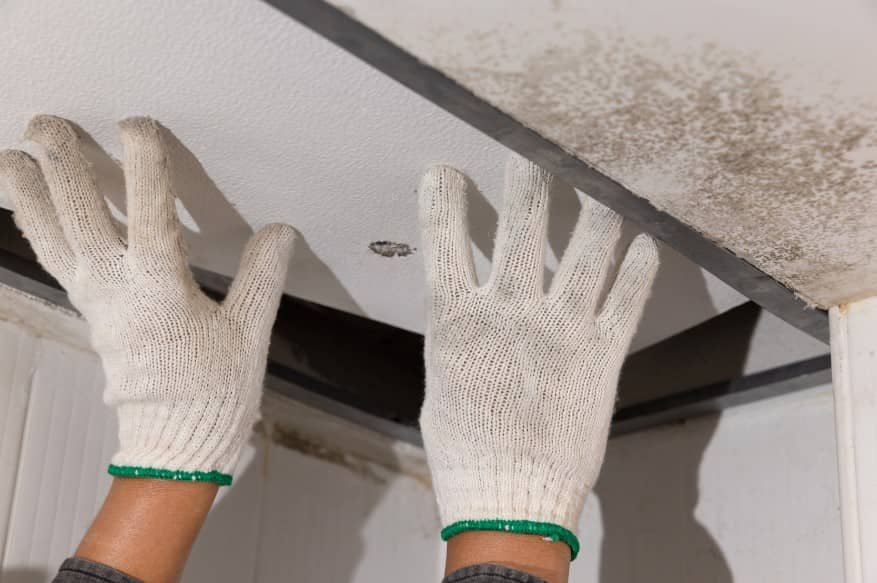Approximately 25 million people in the United States have asthma. That’s nearly one in every ten people, making asthma the most common chronic health condition among children. Managing asthma symptoms and mold allergy symptoms is a significant concern as asthma and mold become more prevalent in homes.
What is Asthma?
Asthma is a chronic inflammation of the airways, which causes frequent and often recurring bronchospasms (airway constriction) and symptoms of wheezing, chest tightness, and shortness of breath. Triggers for the disease include allergens such as pollen, dust mites, pet dander, mold, or cockroach droppings. In addition to asthma, many people with allergies develop rhinitis (inflammation inside the nose), conjunctivitis (eye redness), or eczema (skin rash).
The most common symptoms of asthma include:
- Wheezing
- Difficulty breathing or
- shortness of breath (dyspnea)
- Coughing with or without phlegm (mucus)
- Chest tightness or pain
These symptoms may worsen when you exercise or become exposed to allergens such as pollen, dust mites, or pet dander.

Asthma, a chronic health condition characterized by airway constriction and frequent bronchospasms, can significantly impact daily life. Allergens such as pollen, dust mites, and mold are common triggers for asthma attacks. Recent studies suggest that individuals suffering from allergies and asthma might have low vitamin D levels, increasing their susceptibility to respiratory infections. Mold, a pervasive allergen in many homes, produces mycotoxins that can cause severe allergic reactions, underscoring the importance of identifying and mitigating mold exposure to manage asthma symptoms effectively.
Managing Asthma Symptoms
Asthma remedies include medication, such as inhaled corticosteroids or beta-agonists. These drugs prevent bronchospasms from occurring and reduce inflammation in the airways. For some people with asthma, environmental controls like vacuuming carpets frequently or using air conditioning may help reduce exposure to allergens that trigger attacks.
Recent research has found that some people who suffer from allergies may also have low levels of vitamin D in their blood. People with low vitamin D levels are more likely to get upper respiratory infections. These include colds and sinusitis during winter when sunlight is less available (this includes children with asthma).
Types of Asthma
There are two types of asthma: atopic and nonatopic. Allergies cause atopic asthma, and its symptoms include wheezing, coughing, and shortness of breath. Nonatopic asthma is not caused by allergies but by other factors such as exercise or cold air.

Managing asthma and mold allergies requires a comprehensive understanding of the triggers and effective strategies to minimize exposure. Asthma, a chronic inflammation of the airways, can be triggered by various allergens, with mold playing a significant role for many individuals. The distinction between atopic and nonatopic asthma emphasizes the diverse causes and necessary approaches to treatment. As asthma rates continue to rise among adults, possibly due to increased indoor air pollution, the importance of addressing mold as a significant cause of asthma becomes even more apparent.
Allergic Reactions
The first signs of an allergic reaction can appear at any age, but the most common time for a child to develop an allergy is between the ages of one and four. People with asthma are also at risk of developing allergies to certain foods and environmental chemicals.
Some people may be born with an allergy or develop one early in life (for example, from pollen or dust mites). Others may develop an allergy later in life (for instance, from pet dander).
Asthma Symptoms on the Rise
Adults are now contracting asthma at rates similar to those in children. Some experts believe this may be because of the increased use of asthma medications among adults — but it may also be because adult exposure to indoor air pollution is on the rise.
In a recent study of nearly 4,000 people, about one in eight adults had moderate or severe asthma symptoms. The study, published in the journal JAMA Internal Medicine, looked at data from 1999-2012 and found that the prevalence of asthma rose by 25 percent over that period.
The researchers also found that symptoms had worsened over time: People who reported having moderate or severe symptoms saw their severity increase by 36 percent between 1999 and 2012.
The findings suggest that an increased focus on controlling indoor air pollution might help control asthma rates in children and adults.
Asthma and Mold
Molds are fungi that thrive in damp environments and feed on dead organic matter, such as wood, paper, and food scraps. If you’ve ever seen mushrooms growing on your lawn or in the forest, then you know what molds look like — they’re fungus-like but not mushrooms themselves.
Mold is one of the significant causes of asthma in the household. Mold spores are microscopic and float through the air, settling on surfaces where they can grow into mold colonies. Molds produce allergens (substances that cause allergic reactions), such as mycotoxins (toxins produced by molds), which are also capable of causing asthma symptoms. A small amount of mold can release potentially harmful allergens into the air. More than one-third of children with asthma are due to water-damaged homes.

Symptoms of mold allergy, including sneezing, itchy eyes, and respiratory difficulties, highlight the need for vigilant monitoring of indoor environments, particularly in humid climates where mold thrives. Professional indoor air quality testing services offer a solution by assessing the presence and concentration of mold spores, providing critical information for remediation efforts. By understanding the health risks associated with mold and taking proactive steps through air quality testing, individuals can significantly reduce their asthma symptoms and improve their overall well-being.
Symptoms of Mold Allergy
Molds are fungi that thrive in damp environments and feed on dead organic matter, such as wood, paper, and food scraps. If you’ve ever seen mushrooms growing on your lawn or in the forest, then you know what molds look like — they’re fungus-like but not mushrooms themselves.
Mold is one of the significant causes of asthma in the household. Mold spores are microscopic and float through the air, settling on surfaces where they can grow into mold colonies. Molds produce allergens (substances that cause allergic reactions), such as mycotoxins (toxins produced by molds), which are also capable of causing asthma symptoms.
Mold allergies react to the tiny spores released into the air when molds reproduce. The most common symptoms include sneezing; runny nose; itchy eyes; red, swollen skin rash; wheezing or shortness of breath, and generalized body aches.
A mold allergy can be challenging to detect because symptoms vary so much from person to person and even from allergy season to allergy season, depending on weather conditions such as humidity levels, temperature fluctuations, and rainfall amounts. Some people may experience an allergic reaction only when exposed to large amounts of mold spores at one time. In contrast, others may react every time they contact, even with small quantities of mold spores. Regardless of the time of exposure or how often this happens over time.

air quality in South Florida homes. Struggling with asthma symptoms that just won’t subside? Toxic mold in your home might be to blame. Our team of indoor air quality testing specialists in Miami and throughout Florida can help identify and address mold-related air quality issues. Schedule your appointment today by contacting us or calling 305-244-7379, and take the first step towards breathing easier in your own home.” width=”1920″ height=”2560″ /> Mold Assessment Services inspecting air quality in South Florida homes. Struggling with asthma symptoms that just won’t subside? Toxic mold in your home might be to blame. Our team of indoor air quality testing specialists in Miami and throughout Florida can help identify and address mold-related air quality issues. Schedule your appointment today by contacting us or calling 305-244-7379, and take the first step towards breathing easier in your own home.
Mold Assessment Services inspecting air quality in South Florida homes.
Issues with Asthma? Call An Indoor Air Quality Testing Specialist
Air quality issues with asthma can be a big problem in homes. Our expert technicians perform air quality testing in Miami and throughout Florida. You can make an appointment online to have us come out and perform mold testing or an IAQ test. When buying or selling a home, it’s a wise investment to have the indoor air quality tested when purchasing and selling your home and make sure there are no mold issues.
To schedule your indoor air quality testing Miami or throughout Florida, contact us or call us today at 305-244-7379.


